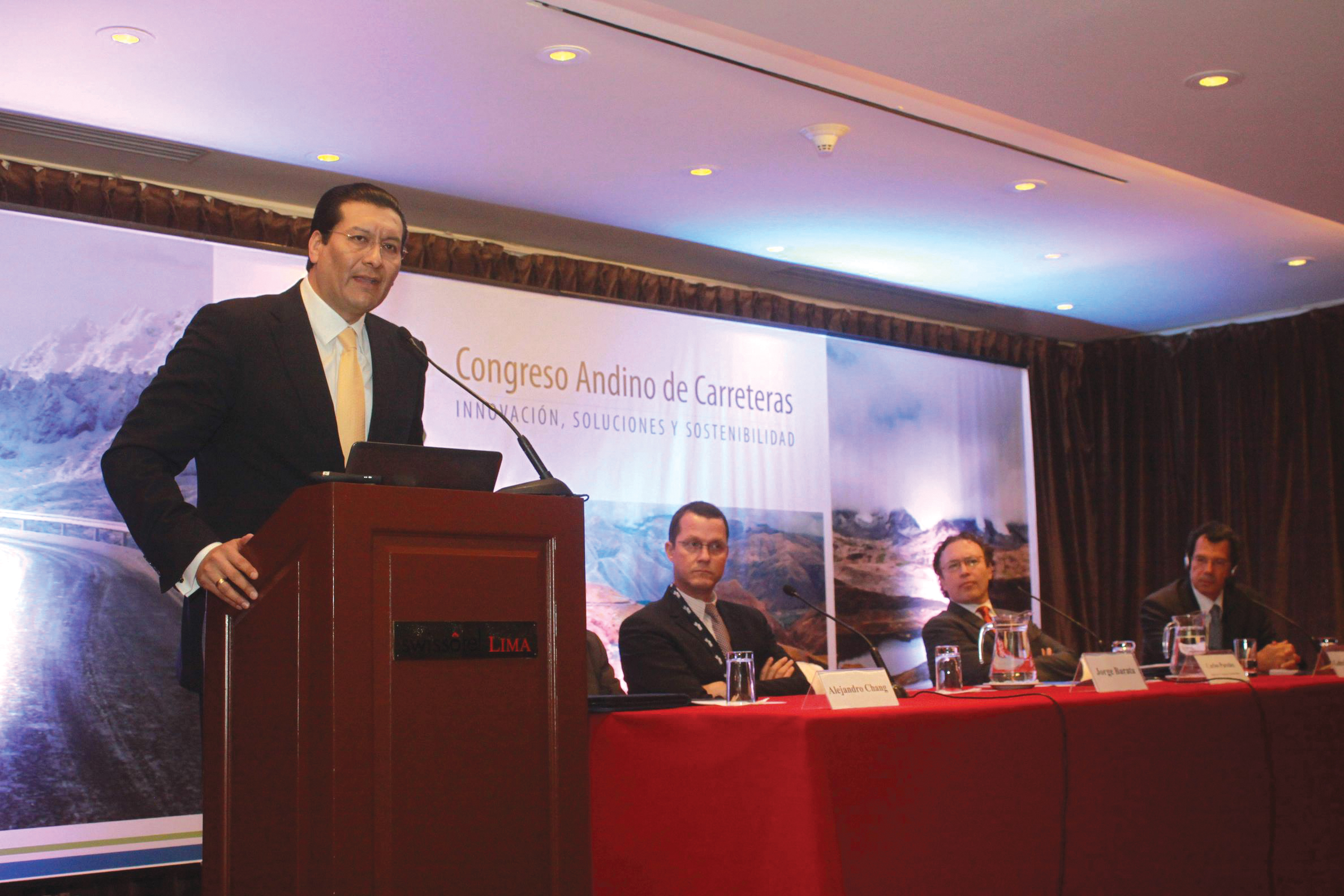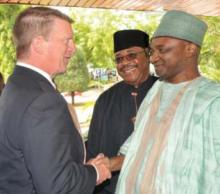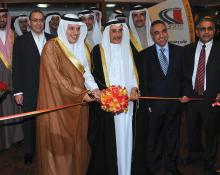IRF once more broke ground by gathering over 600 regional transport officials for the world's first comprehensive review of sustainable transport solutions in the context of the Andean Region. Lima, Peru, an important regional crossroads for trade and a hub for engineering know-how, offered an ideal backdrop for the Congress.
The event offered a comprehensive panorama of design, construction, and maintenance solutions adapted to the region's exceptionally complex topography. Geological and climatic conside

Transport Minister Carlos Paredes opens the 1st Andean Highway Congress
IRF holds 1st Andean Highway Congress in Lima, Peru
The event offered a comprehensive panorama of design, construction, and maintenance solutions adapted to the region's exceptionally complex topography. Geological and climatic considerations present specific challenges to highway engineers and, if not preventively addressed at design phase, lead to accelerated pavement damage and dangerous driving conditions.
Components of a multi-tiered response were presented by regional and international specialists. Polymer pavements, advanced tunnel safety solutions, and weigh-in-motion systems coupled with enhanced enforcement of authorised weight limits were just some of the high benefit-to-cost measures discussed during the three-day Congress.
The resulting investments can present a hurdle to the region's public authorities, particularly on roads with low traffic volumes, leading to innovative concession models tailored to economic realities and trade development potential. Examples of highly successful public private partnerships are visible on the Interoceanic Road, a 2,500km transcontinental highway connecting Peru and Brazil.
Peruvian highways are also gaining ground as a model of social and environmental responsibility. Illustrations of good practices presented during the Congress ranged from pavement recycling, which minimises the use of new materials and energy consumption, to preventive maintenance, which extend the service life of roads with minimal impact on traffic flow.
Opening the event, Peruvian Transport Minister Carlos Paredes announced plans for a US$19 billion program to upgrade Peru’s road network, enhance its fibre optic backbone, and fast track bridge maintenance work. Approximately half this investment will be sourced through public-private partnerships, the Minister added.
"We are proud Peru has been chosen to host this important event, and very pleased with its resonance across the region” added Jorge Barata, managing director of
Patrick Sankey, president and chief executive of the International Road Federation, said the Andean Highway Congress had offered an “extraordinary learning opportunity” for a wide variety of regional actors and confirmed IRF’s role as a global and regional hub for technology transfer in the road and transport sector. “We express our gratitude to the government of Peru, and in particular Minister Paredes and Vice-Minister Chang who engaged IRF in this initiative,” added Sankey.








